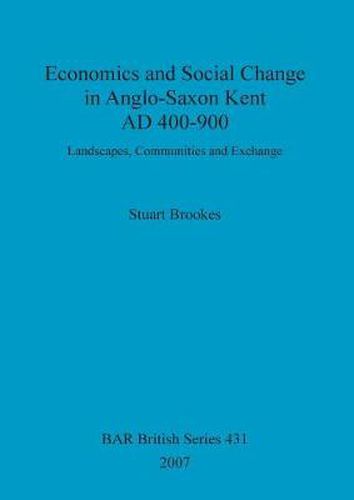Readings Newsletter
Become a Readings Member to make your shopping experience even easier.
Sign in or sign up for free!
You’re not far away from qualifying for FREE standard shipping within Australia
You’ve qualified for FREE standard shipping within Australia
The cart is loading…






This title is printed to order. This book may have been self-published. If so, we cannot guarantee the quality of the content. In the main most books will have gone through the editing process however some may not. We therefore suggest that you be aware of this before ordering this book. If in doubt check either the author or publisher’s details as we are unable to accept any returns unless they are faulty. Please contact us if you have any questions.
This book examines archaeological and historical evidence for the socio-economic organization of the kingdom of East Kent, England, as a territorial and social system during the Early to Middle Anglo-Saxon period (AD 400-900). Explicit archaeological and theoretical frameworks are considered to propose a hierarchical model of the spatial organization of communities as a way of providing a micro-economic casestudy of state formation.
$9.00 standard shipping within Australia
FREE standard shipping within Australia for orders over $100.00
Express & International shipping calculated at checkout
This title is printed to order. This book may have been self-published. If so, we cannot guarantee the quality of the content. In the main most books will have gone through the editing process however some may not. We therefore suggest that you be aware of this before ordering this book. If in doubt check either the author or publisher’s details as we are unable to accept any returns unless they are faulty. Please contact us if you have any questions.
This book examines archaeological and historical evidence for the socio-economic organization of the kingdom of East Kent, England, as a territorial and social system during the Early to Middle Anglo-Saxon period (AD 400-900). Explicit archaeological and theoretical frameworks are considered to propose a hierarchical model of the spatial organization of communities as a way of providing a micro-economic casestudy of state formation.